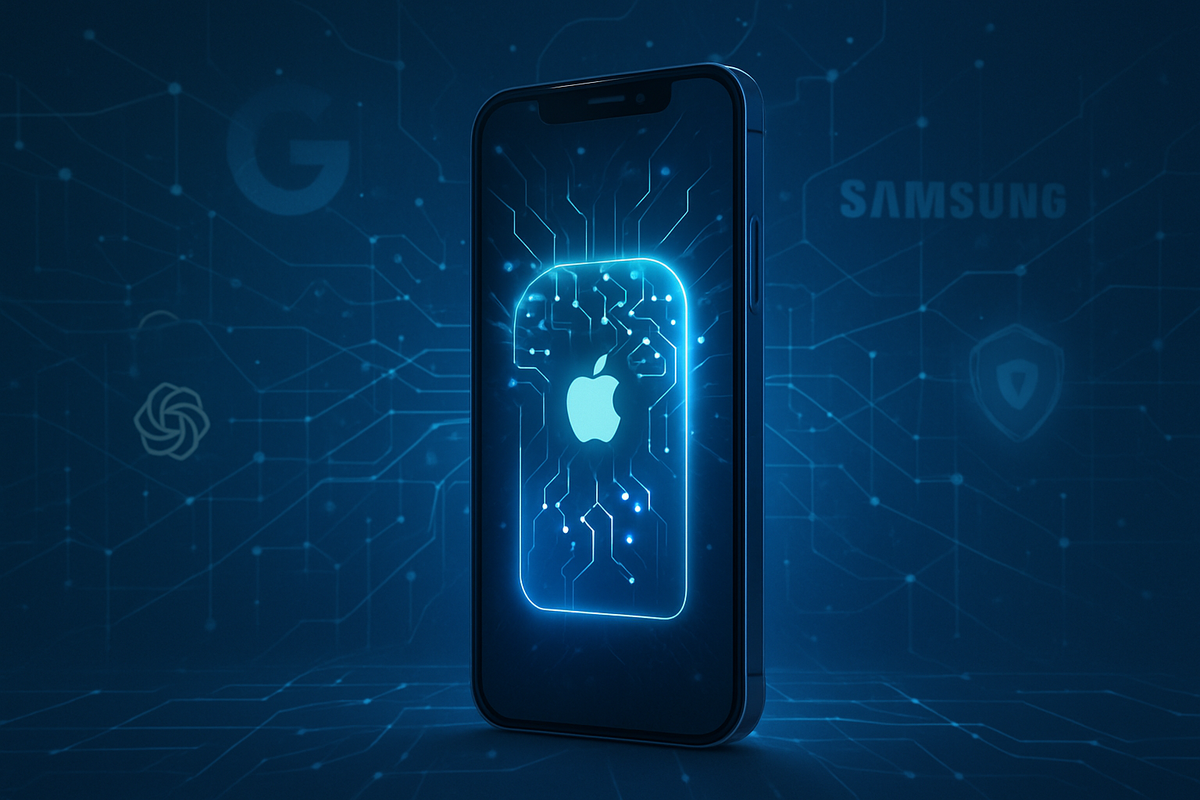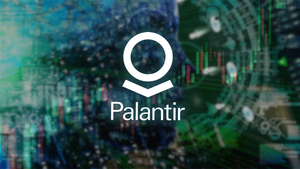
Cupertino, CA – October 1, 2025 – Apple's (NASDAQ: AAPL) strategic integration of OpenAI's advanced ChatGPT into its iOS ecosystem, a cornerstone of its "Apple Intelligence" initiative, continues to send ripples across the global technology landscape. This bold move, designed to supercharge Siri and imbue Apple's vast array of devices with cutting-edge generative AI capabilities, represents a significant pivot for the tech giant, traditionally known for its in-house innovation. While promising a more intuitive and powerful user experience, the integration has ignited an intense "AI arms race," prompting both strategic partnerships and fierce legal challenges from competitors.
The company has vigorously defended its partnership with OpenAI, primarily emphasizing a robust "privacy-first" approach. Apple contends that its agreement is not exclusive and has hinted at future collaborations with other generative AI chatbots. This stance is crucial as the mobile industry grapples with the profound implications of embedding sophisticated AI into the hands of billions, from accelerating mainstream AI adoption to setting new benchmarks for data protection and sparking intense competitive and regulatory scrutiny.
The Dawn of Apple Intelligence: A Detailed Look at the OpenAI Partnership
Apple's (NASDAQ: AAPL) "Apple Intelligence" initiative, unveiled at the Worldwide Developers Conference (WWDC) in June 2024, is a personal intelligence system that seamlessly blends on-device processing with server-based AI. At its core is the deep integration of OpenAI's ChatGPT, initially powered by GPT-4o and later upgraded to the more advanced GPT-5 model in August 2025 for iOS 26, iPadOS 26, and macOS 26. This partnership aims to enhance Siri's capabilities, introduce system-wide writing tools, and enable on-device image generation features like "Image Playground" and "Genmoji." Apple emphasizes that ChatGPT interactions are opt-in, with explicit user consent required, and requests are not logged by OpenAI for users without an account, with IP addresses obscured for privacy.
The timeline leading to this moment has been rapid and impactful. Reports of an impending Apple-OpenAI partnership surfaced in May 2024, followed by the official WWDC announcement in June. Initial developer betas with ChatGPT integration rolled out in July 2024, with a partial public launch of Apple Intelligence in October 2024. Throughout 2025, Apple expanded localized support globally. A significant development occurred in August 2025 when Elon Musk's xAI (NASDAQ: XAI) filed a lawsuit against Apple and OpenAI (Private) alleging anti-competitive behavior. As of October 1, 2025, both Apple and OpenAI have filed motions to dismiss this lawsuit, asserting the non-exclusive nature of their agreement and Apple's intent to collaborate with other AI providers.
Key players in this unfolding drama include Apple (NASDAQ: AAPL), orchestrating the integration while investing in its own on-device AI models and exploring partnerships with other AI providers like Google (NASDAQ: GOOGL) for Gemini. OpenAI (Private), led by CEO Sam Altman, provides the foundational AI models, gaining unprecedented access to Apple's vast user base and seeing its valuation soar. Google (NASDAQ: GOOGL), a fierce competitor with its Gemini model, is reportedly in discussions with Apple for potential integration, highlighting the complex, evolving dynamics. Samsung (KRX: 005930), a long-time Google (NASDAQ: GOOGL) ally, is also adopting a multi-AI strategy, integrating both Google Gemini and exploring OpenAI's ChatGPT for its Galaxy AI platform. Finally, Elon Musk's xAI (NASDAQ: XAI), with its Grok chatbot, stands as a vocal critic and litigant, challenging the partnership on antitrust grounds.
Initial market reactions have been largely positive for Apple (NASDAQ: AAPL), with its shares rising following the WWDC 2024 announcement, pushing its market capitalization above $3 trillion. Analysts view this as a strategic move to catch up in the AI race and potentially drive a multi-year product refresh cycle. However, the xAI (NASDAQ: XAI) lawsuit has cast a shadow, raising significant antitrust concerns that could set precedents for AI partnerships. While consumer interest in some specific Apple Intelligence features was initially mixed in late 2024, the broader integration is expected to accelerate mainstream adoption of generative AI, pushing other mobile players to advance their own AI offerings.
Winners and Losers: The AI Integration's Corporate Ripple Effect
Apple's (NASDAQ: AAPL) deep dive into generative AI via OpenAI (Private) creates a distinct hierarchy of winners and those facing significant challenges within the tech industry.
Apple (NASDAQ: AAPL) emerges as a clear winner. The integration of ChatGPT (GPT-4o, and later GPT-5) across iOS, iPadOS, and macOS immediately enhances Siri's capabilities, introduces sophisticated writing tools, and powers new visual intelligence features. This allows Apple to deliver advanced AI functionalities that it has struggled to develop entirely in-house, effectively closing the "AI gap" with competitors. Crucially, Apple's (NASDAQ: AAPL) emphasis on a "privacy-first" design, with explicit user consent and data anonymization, aligns perfectly with its brand identity and could attract users concerned about data security in the AI era. This strategic flexibility, coupled with its stated intent to partner with other AI providers, positions Apple to lead the "personal intelligence" era.
OpenAI (Private) also gains immensely. The partnership provides OpenAI with unparalleled access to Apple's (NASDAQ: AAPL) immense global user base, encompassing over a billion devices. This serves as a monumental distribution channel, significantly expanding OpenAI's reach into everyday consumer interactions and solidifying its position as a market leader in AI models. The collaboration has reportedly catapulted OpenAI's valuation to $324 billion by September 2025, underscoring the financial significance of this alliance and opening new revenue streams, especially from ChatGPT subscribers who can seamlessly integrate their accounts within the Apple ecosystem.
Conversely, Google (NASDAQ: GOOGL) faces intensified competition. While Apple (NASDAQ: AAPL) is reportedly testing Google's (NASDAQ: GOOGL) Gemini for certain AI search and web summarization features, OpenAI (Private) secured the primary and deeper integration across core iOS experiences. This limits Google's opportunity to be the default AI provider across the entire Apple (NASDAQ: AAPL) ecosystem and significantly intensifies the battle for AI supremacy, particularly in the premium smartphone segment. Google's (NASDAQ: GOOGL) Gemini, despite its advancements, still lags significantly behind ChatGPT in chatbot market share.
Samsung (KRX: 005930), while pursuing a multi-AI strategy with both Google (NASDAQ: GOOGL) Gemini and potential OpenAI (Private) ChatGPT integration, faces the challenge of differentiation. Relying heavily on third-party AI providers could lead to less control over its AI experience compared to a fully in-house solution. Samsung (KRX: 005930) also grapples with potential user apprehension regarding subscription models for AI features post-2025, contrasting with Apple's (NASDAQ: AAPL) bundled AI approach.
xAI (NASDAQ: XAI), Elon Musk's AI company, is currently positioned as a significant challenger. Its antitrust lawsuit against Apple (NASDAQ: AAPL) and OpenAI (Private) alleges anti-competitive practices, claiming the partnership unfairly marginalizes xAI's (NASDAQ: XAI) Grok AI in the App Store. This legal battle represents a high-stakes gamble for xAI (NASDAQ: XAI), potentially impacting its credibility and market share, which is considerably smaller than ChatGPT's. The lawsuit also highlights broader concerns about platform gatekeeping by major tech companies. Other players like Anthropic (Private) (with its Claude AI) could see future partnership opportunities with Apple (NASDAQ: AAPL), indicating a more open AI ecosystem in the long term, while Microsoft (NASDAQ: MSFT) continues to strengthen its enterprise AI position with Copilot.
Broader Implications: Reshaping the AI and Mobile Landscape
Apple's (NASDAQ: AAPL) integration of OpenAI (Private) into iOS is not merely a product enhancement; it's a strategic maneuver that reverberates across the tech industry, aligning with and influencing several broader trends. This hybrid AI architecture, blending on-device processing with cloud-based intelligence, is becoming the industry standard, optimizing for both privacy and computational power. Apple's (NASDAQ: AAPL) strong emphasis on a "privacy-first" AI model, where user consent is paramount and data is anonymized, sets a new benchmark, challenging competitors to elevate their own data protection practices.
The ripple effects are profound. For OpenAI (Private), the partnership is a colossal win, cementing its market leadership and expanding its reach to an unprecedented user base. For competitors like Google (NASDAQ: GOOGL) and Microsoft (NASDAQ: MSFT), it intensifies the AI arms race, compelling them to accelerate their own AI integrations and innovations. Elon Musk's xAI (NASDAQ: XAI) lawsuit against Apple (NASDAQ: AAPL) and OpenAI (Private) directly addresses potential anti-competitive behavior, raising critical questions about platform control and fair play in the emerging AI market. The outcome of this legal challenge could set significant precedents for how AI partnerships are formed and regulated, potentially forcing Apple (NASDAQ: AAPL) to revise its App Store policies or broaden its AI collaborations.
Regulatory and policy implications are significant. Beyond antitrust concerns, data privacy and security remain paramount. Apple's (NASDAQ: AAPL) commitment to on-device processing and opt-in data sharing aims to mitigate these concerns, but the sheer volume of personal data potentially accessible by AI will keep regulators globally, including those enforcing GDPR and the EU AI Act, highly vigilant. Furthermore, broader issues of AI safety, ethics, and the potential for bias and misinformation will continue to be scrutinized as AI becomes more deeply embedded in daily life.
Historically, this event draws parallels to the "browser wars" of the 1990s, where Microsoft (NASDAQ: MSFT) leveraged its Windows operating system to push Internet Explorer, leading to antitrust litigation. Apple's (NASDAQ: AAPL) deep integration of ChatGPT into iOS could be seen as a similar move to establish a dominant AI layer within its ecosystem. However, Apple's (NASDAQ: AAPL) stated intention to partner with multiple AI providers, including discussions with Google (NASDAQ: GOOGL) and Anthropic (Private), suggests a potentially more open approach than Microsoft's (NASDAQ: MSFT) historical strategy. This also marks a critical juncture for Siri, which, despite its pioneering role, had fallen behind competitors. The OpenAI (Private) integration is Apple's (NASDAQ: AAPL) ambitious attempt to "supercharge" Siri and reclaim leadership in the voice assistant space, transforming it into a truly proactive and intelligent personal companion.
The Road Ahead: Navigating AI's Evolving Landscape
As of October 1, 2025, Apple's (NASDAQ: AAPL) integration of OpenAI (Private) capabilities into iOS, under the "Apple Intelligence" banner, sets the stage for a dynamic and evolving future. In the short term (late 2025 - early 2026), the focus remains on the full rollout and refinement of enhanced Siri features, system-wide writing tools, and advanced image generation capabilities. While many features are already available, a major overhaul of Siri, leveraging advanced large language models for continuous conversations and complex tasks, is still anticipated for early 2026. This period will be crucial for Apple (NASDAQ: AAPL) to demonstrate the real-world utility and seamlessness of its AI offerings to a broad user base.
Looking further ahead (2026 and beyond), Apple's (NASDAQ: AAPL) long-term strategy appears to be multi-faceted. While leveraging OpenAI (Private) for immediate capabilities, Apple (NASDAQ: AAPL) is actively developing its own "Apple Foundation Models," with plans for deeper integration into Siri by 2026. This suggests that the OpenAI (Private) partnership may serve as a strategic bridge as Apple (NASDAQ: AAPL) builds out its comprehensive in-house AI solutions. Furthermore, Apple's (NASDAQ: AAPL) stated intention to partner with other generative AI chatbots, such as Anthropic (Private) and Google's (NASDAQ: GOOGL) Gemini, indicates a flexible, multi-provider approach to its external AI capabilities, reducing reliance on a single entity. The expansion of on-device AI, powered by Apple's (NASDAQ: AAPL) Neural Engine, will continue to prioritize privacy and speed, handling simpler tasks locally while securely leveraging "Private Cloud Compute" for more intensive processes.
Strategic pivots will be essential for Apple (NASDAQ: AAPL). The company, historically known for its insular development, has embraced partnerships to rapidly advance its AI offerings. Maintaining its privacy-centric differentiation in a hybrid AI architecture will be paramount. Navigating the increasing regulatory scrutiny, particularly regarding antitrust concerns highlighted by the xAI (NASDAQ: XAI) lawsuit, will require careful adaptation of its platform access policies and AI collaboration strategies. Apple (NASDAQ: AAPL) will also need to address regional gaps, such as the absence of ChatGPT in mainland China, by seeking local AI partnerships.
Market opportunities are substantial. By bringing generative AI to its vast installed base, Apple (NASDAQ: AAPL) can accelerate mainstream AI adoption, deepen ecosystem lock-in, and drive a potential "AI supercycle" of device upgrades. Its privacy-first approach offers a strong competitive differentiator. However, significant challenges remain, including intense competition from AI-first rivals, ongoing privacy and trust concerns related to third-party models, and the risk of further regulatory and antitrust scrutiny. Delays in rolling out crucial AI features could also temper user enthusiasm.
Potential scenarios range from "Intelligent Ecosystem Dominance," where Apple (NASDAQ: AAPL) successfully integrates multiple AI models and its own, driving significant growth, to a "Fragmented AI Landscape," where legal battles and integration difficulties lead to a less unified and potentially less competitive AI experience. The coming months will be critical in determining which path Apple (NASDAQ: AAPL) takes as it solidifies its position as a leader in consumer AI.
Wrap-Up: Apple's AI Leap and the Future of Mobile Intelligence
Apple's (NASDAQ: AAPL) integration of OpenAI's (Private) ChatGPT into iOS, under the ambitious "Apple Intelligence" banner, represents a defining moment for the company and the broader mobile industry as of October 1, 2025. This strategic pivot allows Apple (NASDAQ: AAPL) to rapidly infuse its ecosystem with cutting-edge generative AI, aiming to transform user interaction with its devices while steadfastly upholding its core tenets of privacy and on-device processing. The move has not only invigorated Apple's (NASDAQ: AAPL) product offerings but also intensified the global AI race, prompting both collaboration and confrontation among tech giants.
The key takeaways underscore Apple's (NASDAQ: AAPL) commitment to a hybrid AI approach, leveraging external expertise from OpenAI (Private) (and potentially others like Google (NASDAQ: GOOGL) Gemini and Anthropic (Private) Claude) while simultaneously developing its own "Apple Foundation Models." The overhaul of Siri, the introduction of system-wide writing tools, and advanced image generation capabilities are poised to make Apple (NASDAQ: AAPL) devices more intelligent, intuitive, and personalized. Apple's (NASDAQ: AAPL) emphasis on user privacy, requiring explicit consent for data sharing and ensuring anonymization, is a critical differentiator in an increasingly data-conscious world.
Moving forward, the market will witness a heightened competitive landscape. OpenAI (Private) has seen its valuation soar and its reach expand exponentially, cementing its position as a leading AI provider. For Apple (NASDAQ: AAPL), the success of "Apple Intelligence" hinges on its ability to deliver on the promise of a truly intelligent, proactive Siri and a seamless AI experience across its hardware. The ongoing antitrust lawsuit filed by xAI (NASDAQ: XAI) against Apple (NASDAQ: AAPL) and OpenAI (Private) is a critical legal battle that could reshape how AI partnerships are formed and regulated, potentially influencing platform access policies across the industry.
The lasting impact of this integration could be a profound shift in how users interact with their technology, moving towards a more conversational and context-aware computing experience. If Apple (NASDAQ: AAPL) successfully executes its AI vision, it could trigger an "AI supercycle" of device upgrades, further cementing its ecosystem lock-in and driving significant revenue growth. However, continued delays in crucial AI features and adverse outcomes from legal challenges pose risks that could temper user enthusiasm and cede ground to rivals.
Investors should closely monitor the resolution of the xAI (NASDAQ: XAI) lawsuit, as it carries significant implications for market dynamics and regulatory scrutiny. The timely and successful rollout of Siri's advanced features, particularly the fully revamped LLM-powered version expected in early 2026, will be a crucial indicator of Apple's (NASDAQ: AAPL) execution capabilities. Furthermore, watch for any announcements regarding additional third-party AI partnerships and the financial impact of AI integration on Apple's (NASDAQ: AAPL) earnings reports, including potential revenue growth from services and increased device sales. The evolving regulatory environment and Apple's (NASDAQ: AAPL) performance in key markets like China, where AI functionality is a critical differentiator, will also be vital indicators in the coming months.
This content is intended for informational purposes only and is not financial advice.





